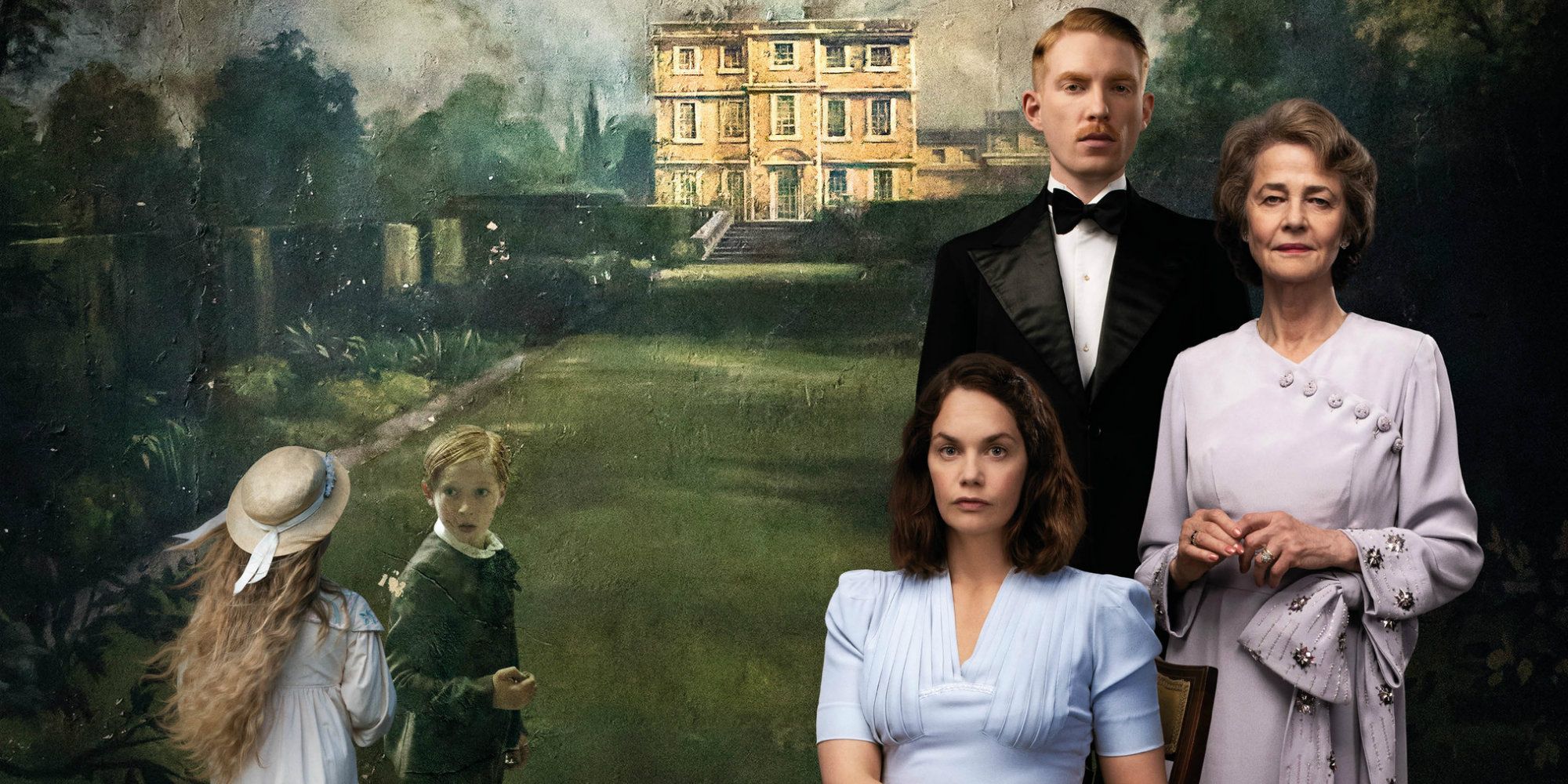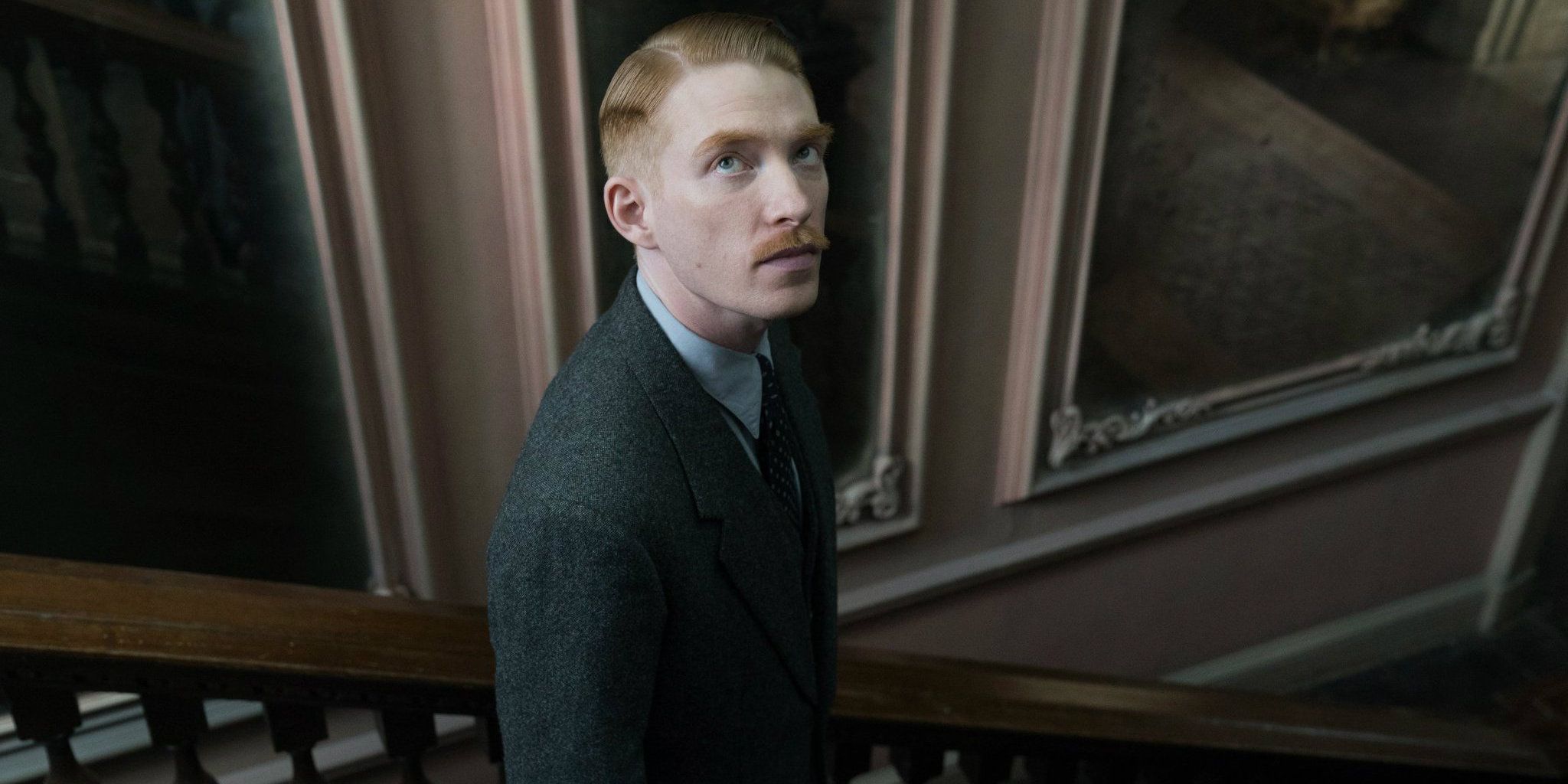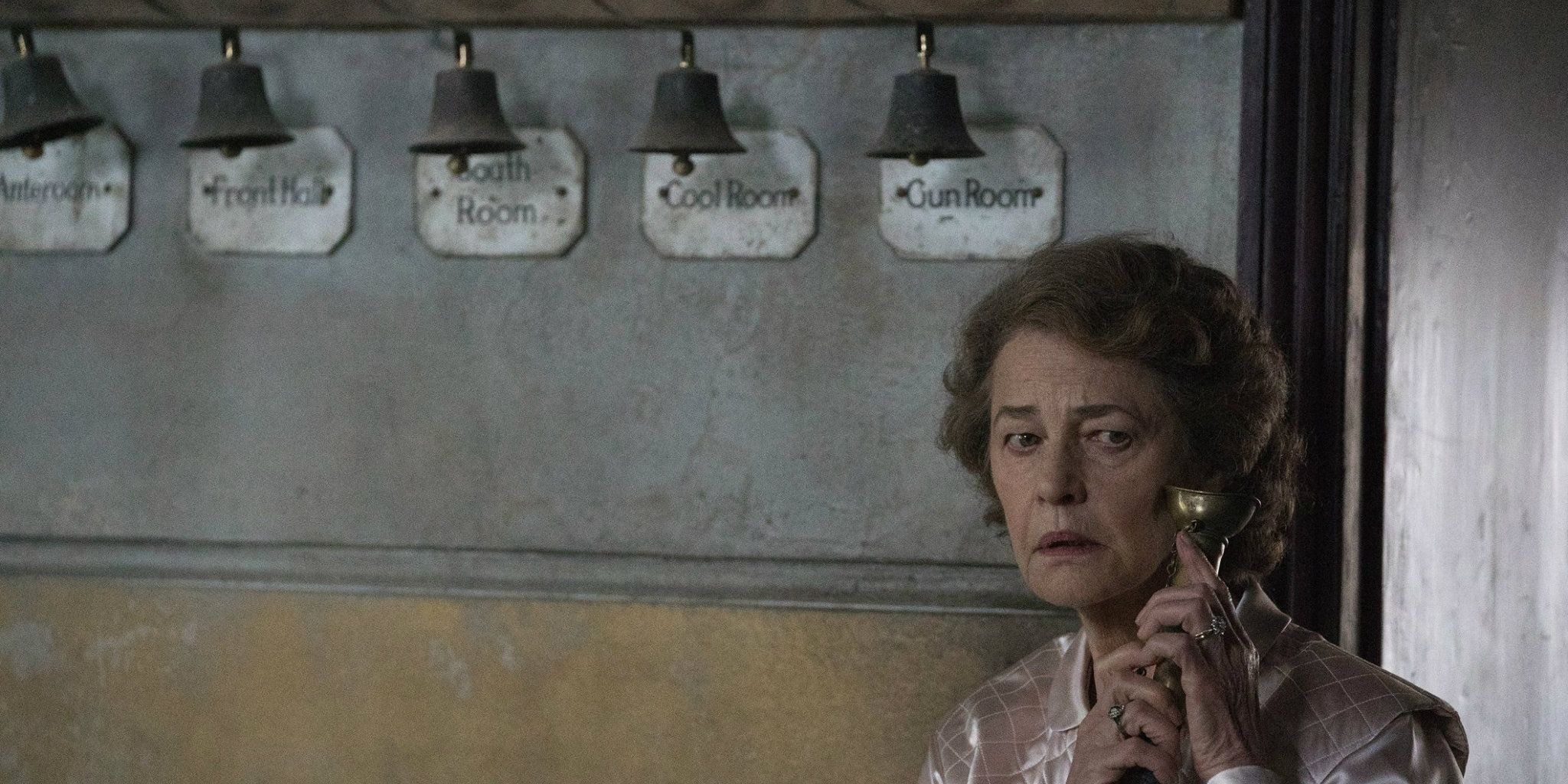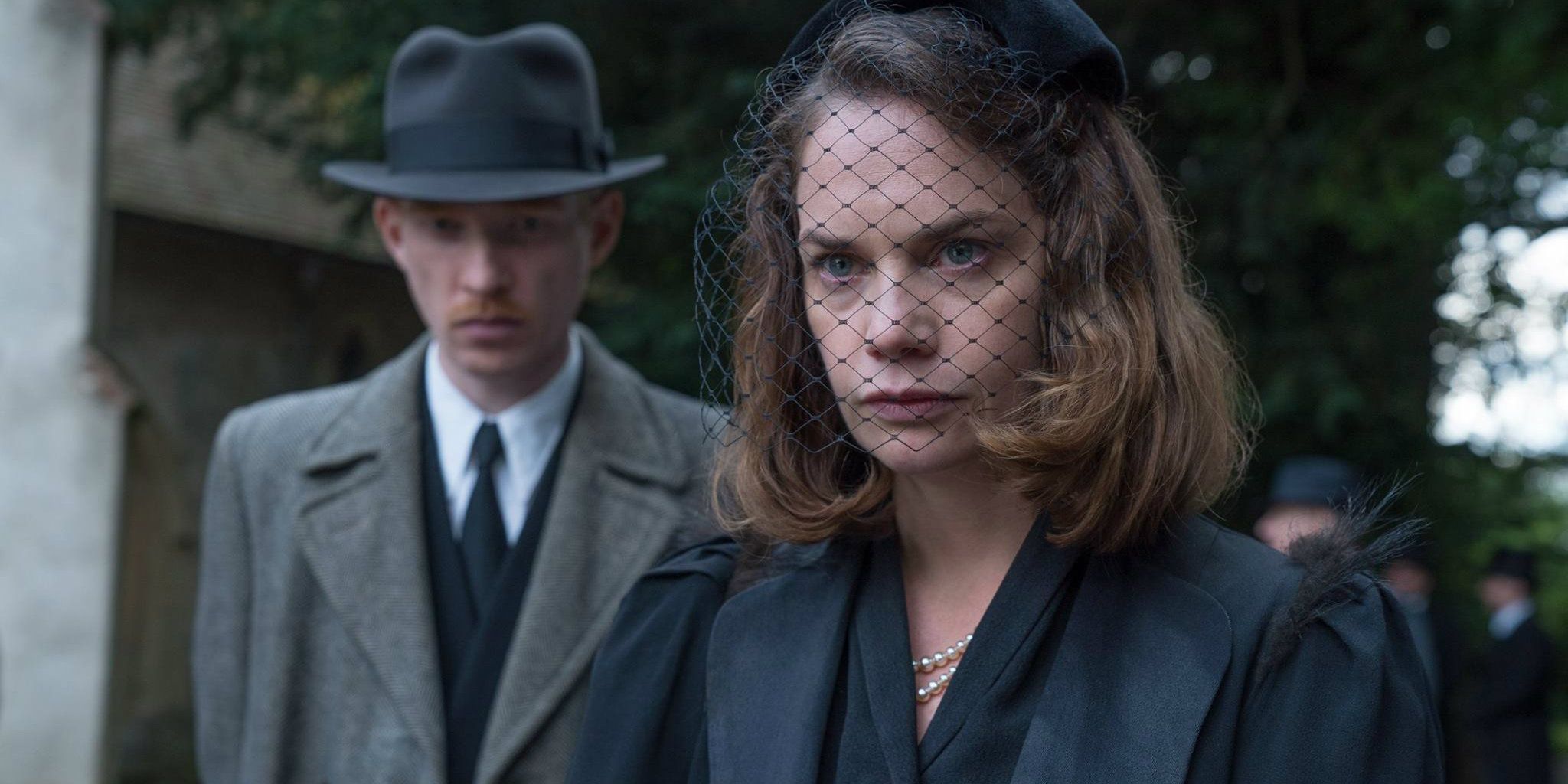https://ift.tt/2Ml9ndM - youtube channel The Little Stranger Review: Gothic Horror Drama Done Right https://ift.tt/2PQ5rk8 August 30, 2018 at 12:08AM 
The Little Stranger is a gripping adaptation that's more Gothic drama than horror-thriller, but may haunt you long after its credits are done rolling.
Much like Lenny Abrahamson's last two directorial efforts (Frank and the Oscar-winning Room), The Little Stranger is a film that defies easy labels and genre convention, in the very best ways. Based on the 2009 novel by Sarah Waters, this spooky historical offering was adapted for the big screen by Lucinda Coxon - a playwright/screenwriter who has demonstrated a knack for both socially conscious period pieces (The Danish Girl) and set design-heavy Gothic melodrama (see her uncredited efforts on Crimson Peak). The movie similarly plays to Abrahmson's strengths as a filmmaker who specializes in stories about people tormented by the personal horrors and traumas from their past. This in turn makes the project the perfect match for this particular writer/director pairing. The Little Stranger is a gripping adaptation that's more Gothic drama than horror-thriller, but may haunt you long after its credits are done rolling.
Set in England in the summer of 1948, The Little Stranger unfolds from the perspective of Dr. Faraday (Domhnall Gleeson): a man from humble beginnings who has since made his name as a well-respected and accomplished country doctor. One day, he is called upon to treat a patient - namely, the housemaid Betty (Liv Hill) - at Hundreds Hall: a once luxurious estate that has fallen into disrepair, now that the formerly wealthy Ayres family (the Hall's owners for centuries) are no longer able to sustain their way of life in the post-WWII world. However, Faraday's connection to this place actually goes all the way back to 1919, when he first laid eyes on it as a child, some years after his working-class mother served there as a housemaid herself.

Over the course of his followup visits to the Hall, Faraday grows closer to the Ayres clan by treating their grown son Roderick (Will Poulter) for the debilitating injuries he suffered in the Royal Air Force, and befriending their matriarch, Mrs. Ayres (Charlotte Rampling). Faraday likewise begins to form a connection with Mrs. Ayres' daughter, Caroline (Ruth Wilson), that gradually starts to evolve into something romantic, despite their differences in class. All the same, the Ayres can't shake the feeling that there's an ominous presence in their house that wishes them nothing but misfortune... and may have something to do with the young girl that Faraday encountered as a child when he visited the Hall, all those years ago.
Like Waters' book, Coxon's adapted script folds themes about the changes in class structure in post-WWII England into a Gothic narrative that quietly subverts certain tropes of the genre, yet is drawn in the same classical style as famous period dramas and supernatural horror stories that have come before it (Brideshead Revisited and The Turn of the Screw, for example). While The Little Stranger ends up being explicit about certain plot points that Waters' novel leaves more ambiguous, it arguably serves the overarching storyline and its concerns about the true nature of evil, rationalism vs. spirituality, and the destructiveness of the desire to climb in social stature. Abrahamson and Coxon are further successful in adapting the psychological aspects of The Little Stranger's source material for the medium of cinema, smartly implementing storytelling tools like voiceover narration and flashbacks in ways that never come across as being lazy and, at the same time, successfully raise questions about how reliable (or not) a narrator Faraday really is.

Abrahmson and his cinematographer Ole Bratt Birkeland (Ghost Stories) firmly set the tone for The Little Stranger in the way they photograph Simon Elliott's (The Book Thief) handsome production design for Hundreds Hall and its surroundings. The film smartly draws from a moody color palette of grays and blacks (and variations thereon) during its present-day scenes, as a vivid contrast to Faraday's more brightly lit recollections of the decaying manor. This painterly approach results in a beautifully eery-looking movie that retains a richly haunting sense of atmosphere throughout its runtime, with a mournful yet lovely score by Stephen Rennicks (Abrahmson's Frank and Room collaborator) to aid its cause. While The Little Stranger is by no means a thrill ride (despite what its marketing might have you believe), its deliberate slow pace and quiet temperament make the louder and more violent sequences all the more unsettling and disturbing, without having to resort to cheaper tactics (namely, easy jump scares).
Gleeson as Dr. Faraday is himself the perfect representation of the film's attractive, yet troubling and unsettling design, with his sharply gaunt appearance and uncomfortably soft-spoken manner. The actor does a great job of masking his character's true intentions, leaving it to the audience to wonder if he is to be trusted... or if Faraday is hiding some malicious and sinister intent behind his (seemingly) polite and gentle demeanor. Indeed, as with his previous movies, Abrahamson excels at bringing out strong performances all around from his actors in The Little Stranger. Wilson and Rampling are equally well-cast in their respective roles as two people that are slaves to their stature and family name, albeit in rather different ways. Meanwhile, Poulter delivers a solid performance here as a WWII veteran damaged in more than one way, without seeming out of place next to the movie's English actors (and thus, further demonstrating his dramatic range after his villainous turn in last year's true story drama, Detroit).

Because The Little Stranger is more psychological drama than thriller (as indicated earlier), some may find the film to be merely slow, rather than suffocating and menacing. Moreover, some fans of Waters' original book might be a bit disappointed by how the film is clear-cut about certain things that its source novel leaves more up in the air. That's not to say the film is ham-fisted in its storytelling - far from it. It simply has an interpretation of the source material's implications and true meaning that may differ from what others took away from it. Nevertheless, it's a clever and thoughtful interpretation that may even inspire some to re-read Waters' novel from a different perspective.
Ultimately, The Little Stranger is yet another subtly powerful offering from Abrahamson that combines several elements - Gothic romance, supernatural horror, psychological drama - in such a way that it avoids fittingly squarely into any single genre box (though this also makes the film all the more difficult to market - hence its somewhat misleading trailer and posters). The film may not be the straightforward horror-thriller that some are looking for, but it's certainly worth checking out if you're in the mood for a quality period drama that's heavy on menacing atmosphere and slow-burn creepiness. What better way to wrap up August and the end of the summer movie season than a bone-chilling trip back in time to the English countryside?
TRAILER
The Little Stranger begins playing in U.S. theaters tonight. It is 111 minutes long and is rated R for some disturbing bloody images.
Let us know what you thought of the film in the comments section!
from ScreenRant - Feed https://ift.tt/2LzowE1
via IFTTT
from https://ift.tt/2PfGJZo
via IFTTT
No comments:
Post a Comment